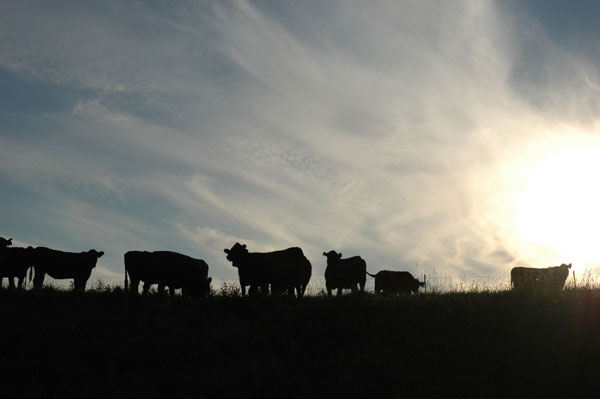March 24, 2016

Western civilization is losing the war on terrorism, because our politically-correct views do not allow us to even admit that we are at war, while the opposition suffers under no such illusions. In a similar way, agriculture will not like the outcomes of the “sustainability” movement, because we have failed to engage it at the level it is being fought. If we continue on our current path, sustainability will be co-opted like the environmental and animal welfare movements.
Most of us in agriculture do not even understand the sustainability discussion. We take it too literally. We think of sustainability in terms of how we define the idea, and we think science, logic and engagement will lead to good outcomes. After all, sustainability is the basis of everything we do in agriculture and every decision we make.
I would argue, after really trying to understand the subject, that sustainability means nothing. It means nothing to the activists, producers, retailers and consumers. It is a buzzword; a cliché that is, in effect, empty and meaningless. Yet, everyone is for it! It is simply an umbrella under which every issue that anyone may have a stake in can be covered.
The book “The Jungle” changed America’s view of food safety forever; Uncle Tom’s Cabin changed the way the world viewed slavery. The reason I mention these books is that they changed the way the world thought because they told a story, they brought their message to life; it was that emotion, that connection that helped reshape the world.
We are not our story, or at least as an industry we are not telling it very effectively. We send our representatives to important meetings wearing wing-tipped shoes, three-piece suits and espousing facts and science. That’s fine, but if we are going to create outcomes that are truly sustainable, then we need to do a much better job of telling our story.
And we have a great story. It is lived every single day. One of my favorite Christmas cards has a picture of a cowboy riding home at night in a snow storm with a young calf draped across his saddle. I love it because it symbolizes the creed we all live by; the animals and the land come first.
How many of us have stopped to watch the hawk circle in the air, or watched the beauty of that big buck we roused from his bedding grounds? We do this because we love nature.
There is not a ranch kid alive who doesn’t understand that there is no such thing as a 9 to 5 job in ranching. You go until the animals are cared for, even if that means staying up 64 hours straight when that unexpected blizzard rolls in. We have all watched that rancher during a drought send his cows to town, knowing that he would lose his equity and his income for the next several years, but accepting it because taking care of the land is the top priority.
Other businesses talk about five to 10 years down the road in their long-term planning exercises, like it is heroic to look beyond the next quarter or year. In ranching, a large percentage of our decisions are based on what is best for the next generation. We have a legacy; our fathers and our grandfathers took care of the very land that we are praying that our grandchildren will be on. Even the dustbowl era, which is now nearly 80 years ago, while a colossal failure, was a failure of knowledge, technology, government policies and other factors… and has shaped conservation and modern agriculture ever since.

70 photos show ranchers hard at work on the farm
Readers have submitted photos of hard-working ranchers caring for their livestock and being stewards of the land. See reader favorite photos here.
Agriculture is the model for sustainability and is the key to the sustainability of the human race. We shouldn’t be told what to do when it comes to sustainability, we should be leading the conversation. Nobody has been more committed to sustainability, or made more progress, than the American rancher, we simply need to tell our story.
When you study the environmental movement and the sustainability leaders’ agenda, it contains a lot of other issues such as anti-capitalist, anti-free market, anti-business and anti-individual initiative, and is supportive of socialist, collective/elitist and big government solutions. But again, this is a battle that we can and should win. History has proven those philosophies end in abject failure. It is why they don’t openly espouse them (the Bernie Saunders phenomena excluded), but instead cloak them under big umbrella issues like sustainability, where they can advance those agendas on the perimeter.
If we continue to allow those activists to be the only ones telling the story, then they will continue to carry the direction of the sustainability movement. It’s time to trade in the suits, ties and wing tips for boots and a hat and to start sharing the passion and commitment that nearly everyone in this business wakes up and goes to bed with.
The opinions of Troy Marshall are not necessarily those of beefmagazine.com and the Penton Agriculture Group.
You might also like:
Photo Gallery: Get to know the 2016 Seedstock 100 operations
Experts say ranching done right improves the environment and wildlife habitat
5 tips to make bull buying easier
Calving Tips: Going To War On Calf Scours
70 Photos Honor The Hardworking Cowboys On The Ranch
How to control sucking & biting lice on cattle
About the Author(s)
You May Also Like



